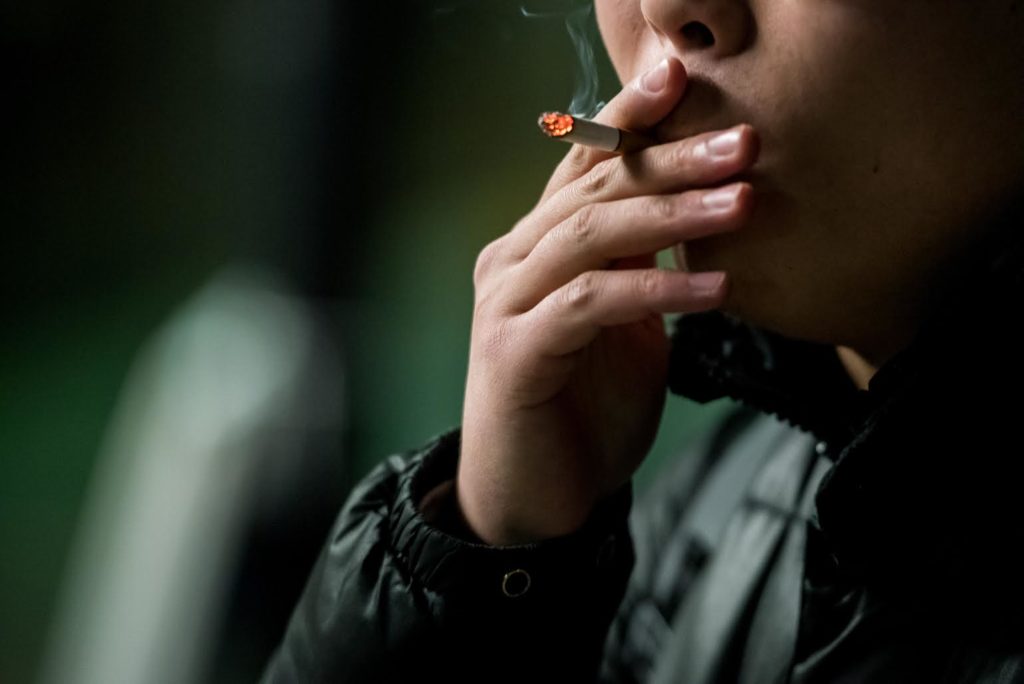By Liam Hofmeister, inside editor
Boston could become the latest city to ban the purchase of tobacco products by people under 21 due to a push by Mayor Martin J. Walsh to raise the age threshold by three years.
A public hearing hosted by the Boston Public Health Commission (BPHC) will take place Thursday, Dec. 3, to discuss the proposal. The Board of Health’s vote on the age hike is expected on Dec. 17.
“It is our responsibility to do what we can to guide our young people and create a healthier future for all Bostonians,” Walsh said in a press release on Nov. 18. “These proposed changes send a strong message that Boston takes the issue of preventing tobacco addiction seriously, and I hope that message is heard throughout Boston and across the entire country.”
Raising the legal age to buy tobacco would decrease young people’s likelihood of smoking by 12 percent, according to an Institute of Medicine (IOM) report released in March. Data from the report suggests an age increase in Boston would lead to 472 fewer premature deaths, 100 fewer deaths from lung cancer and 8,400 fewer years of life lost for those born between 2000 and 2019.
Across the US, Hawaii is the only state thus far to mandate a similar age hike. New York City is the most populous city to have increased the legal age of tobacco purchase. If Boston joins New York, a new national precedent could be set, according to John Schacter, director of communications for the Campaign for Tobacco Free Kids.
“We do know that raising the age from 18 to 21 will help keep tobacco out of high schools,” Schacter said. “We’re removing the pipeline of older students or friends who can supply students with tobacco.”
This proposal comes after Walsh’s September ordinance to prohibit the use of tobacco products at all sports venues in the city, including Fenway Park.
Critics of the tobacco industry say marketing continues to target younger demographics, especially with flavored tobacco and e-cigarettes.
“Flavored and low-cost products are designed for youth,” Margaret Reid, director of the BPHC Division of Healthy Homes and Community Supports, said. “When someone starts smoking, the taste of tobacco doesn’t taste good. 80 percent of smokers started before they were 18, but with this new regulation at 21, we can prevent 95 percent of smoking initiation.”
Early next year, Massachusetts lawmakers will consider raising the minimum age to buy tobacco to 21 statewide. Rep. Paul McMurtry, D-Dedham, is the primary sponsor of the bill, H2021.
“There are public health care costs related to what we know that smoking causes. To me, it’s a simple fix,” McMurtry said. “Hopefully we can mirror [Walsh’s] example in the state of Massachusetts.”
Nearly 60 other legislators have co-signed the bill, according to McMurtry. He said he hopes to see it passed in early 2016.
Retailers have spoken out against the proposed change as an assault on businesses.
Although 18-to-21-year-olds are not the majority of tobacco purchasers, limiting their rights to purchase tobacco would affect markets, according to Ryan Kearney, general counsel at Retailers Association of Massachusetts.
“Our biggest loss will be in incidental sales when someone goes to buy a pack of cigarettes and grabs milk, eggs or bread, too,” Kearney said. “To penalize a merchant, we think, is misguided and bad.”
Richard Daynard, Northeastern University professor of law, said that the judgment of organizations opposing the measure may be clouded by the allure of sales figures.
“Historically, these groups are interested in profits and funding from the tobacco industry.” Daynard said. “The tobacco industry just doesn’t like the fact that this may actually reduce consumption among young people because if you don’t start early, you probably won’t get started.”
Ahmed Tolah, a smoker and junior biophysics major at Northeastern, lauded Walsh’s proposal. Tolah began smoking at age 20. While he’s aware of the health risks, he says tobacco is part of his routine now.
“I think it is better to do something,” Tolah said. “Smoking is the leading cause of [preventable] death, and it can be stopped.”
Photo by Scotty Schenck









